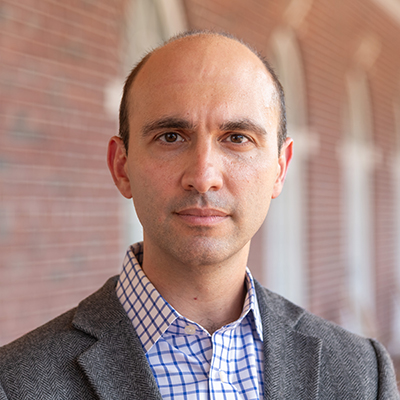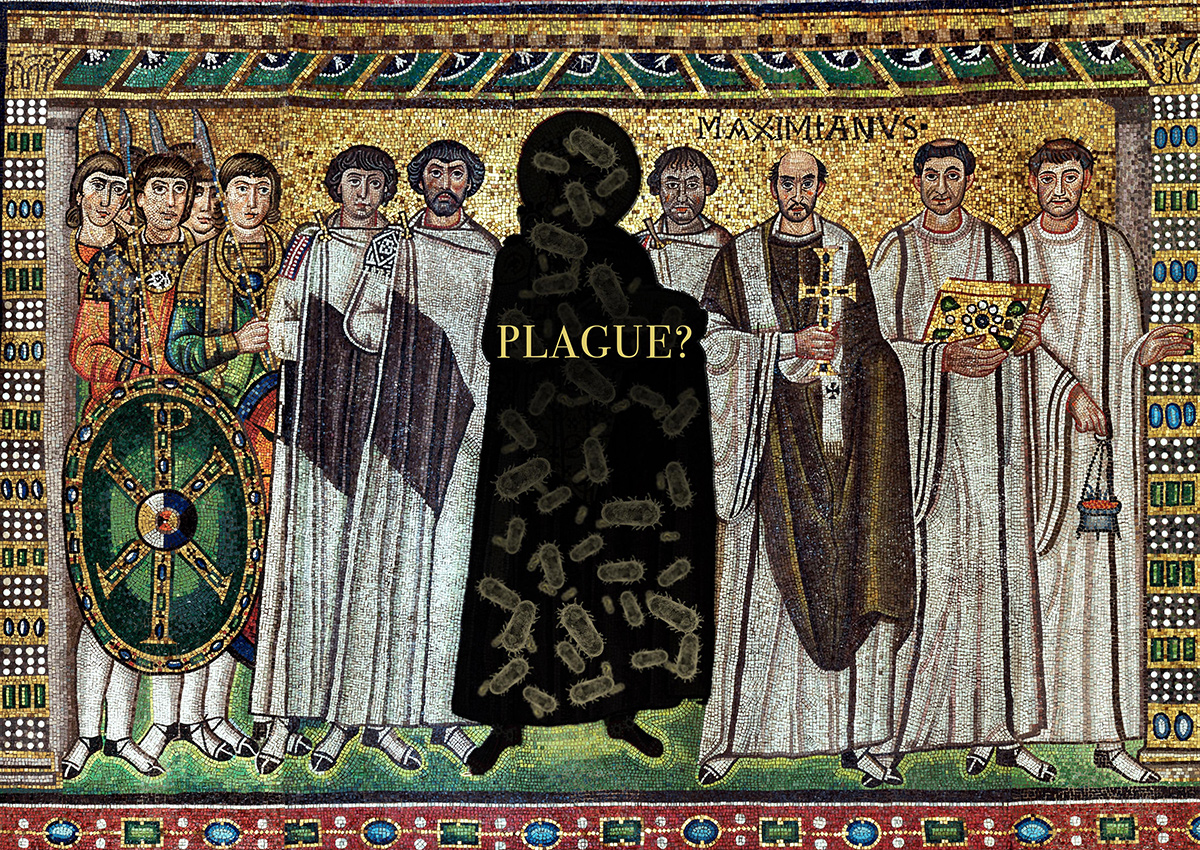
History’s Eisenberg receives NEH grant for collaborative research on the First Plague Pandemic
Friday, September 19, 2025
Media Contact: Elizabeth Gosney | CAS Marketing and Communications Manager | 405-744-7497 | egosney@okstate.edu
Oklahoma State University Department of History assistant professor Dr. Merle Eisenberg recently received a National Endowment for the Humanities Collaboration grant for nearly $250,000 to conduct research on the First Plague Pandemic.
The College of Arts and Sciences faculty member will be working alongside Hebrew University of Jerusalem senior lecturer Dr. Lee Mordechai to produce a book on the historical pandemic — which took place between about 541-750 CE — that’s tentatively titled, “Pandemic and History: Disease, Myth, and the End of Antiquity.”
Eisenberg and Mordechai will use the NEH grant and a $180,000 grant from the United States-Israel Binational Science Foundation to expand on their eight years of collaborative work on the First Plague Pandemic. Their forthcoming book will explore how a plague pandemic became conceptualized as a key motor of historical change, ending the ancient world and beginning the Middle Ages.
“‘Pandemic and History’ will explore the societal, cultural and environmental effects of the First Plague Pandemic from Ireland to the Middle East,” Eisenberg said. “It will examine historical, archaeological and scientific data and reevaluate the popular narrative of widespread collapse. It also investigates how people experienced the pandemic and developed new cultural understandings of disease.”
At the same time, the book will trace the development of the catastrophic narrative over the last 150 years as it was turned into a model that has shaped modern and contemporary responses to recent pandemics. Eisenberg and Mordechai aim to uncover the role of colonial administrators at the turn of the 20th century in the construction of a myth about the unmitigated, devastating impact of late ancient plague.
The administrators, Eisenberg explained, harnessed late ancient plague to demonstrate the conquest of their own plague outbreaks at the turn of the 20th century through modern know-how. The NEH-funded project seeks to demonstrate how these technological conquest ideas persist through the COVID-19 pandemic, which as a result, de-center the human impacts of pandemics in favor of debates about hypothetical collapse.

“The First Plague Pandemic, known infamously as the Justinianic Plague, has long been thought to cause the collapse of empires,” Eisenberg said. “Yet, no pandemic has a ‘one-size fits all’ impact, even as it kills untold numbers of people. But we came to realize during our research that we must examine all types of sources to highlight the pandemic’s varied impact and the resilience of local communities. And we also need to take more seriously how people at the time thought about disease and how their pandemic experience shaped their views of the world afterward.”
The grant will allow Eisenberg and Mordechai to meet multiple times over three years to write their book. Among other plans, they will organize workshops with leading scholars of disease, the environment and late ancient history at OSU.
“We realized since the outbreak of COVID that past pandemics are used as historical examples that offer a measuring stick for the present,” Mordechai said. “In short, contemporary responses are portrayed as successful if they are better than what occurred in the historical past. These explicit comparisons mean anything less than the deaths of 20% or more of a population, such as supposedly occurred during the First Pandemic — including COVID’s over 1 million deaths in the U.S. — becomes acceptable, since it is not equally devastating.”
The authors will engage in archival research about how the First Plague Pandemic narrative has been shaped by over a century of histories written about it. As part of their plans, they will examine the role of academic knowledge production, such as publication structures and funding schemes, along with modern scientific frameworks, such as epidemiology, in constructing accounts of ancient pandemics.
“It is wonderful when scholars like Dr. Eisenberg collaborate with global colleagues showcasing the cutting-edge research taking place every day at OSU,” said Dr. Camelia Knapp, CAS associate dean for research. “The College of Arts and Sciences looks forward to hosting workshops and public talks by leading scholars in premodern pandemic studies and highlighting the vital work of humanities scholarship in the world today.”
Eisenberg and Mordechai previously co-authored a book on disease and movies, “Diseased Cinema: Plagues, Pandemics and Zombies in American Movies.” They have also published multiple articles together, including in The Proceedings of the National Academy of Sciences (PNAS), The American Historical Review and Past & Present.
